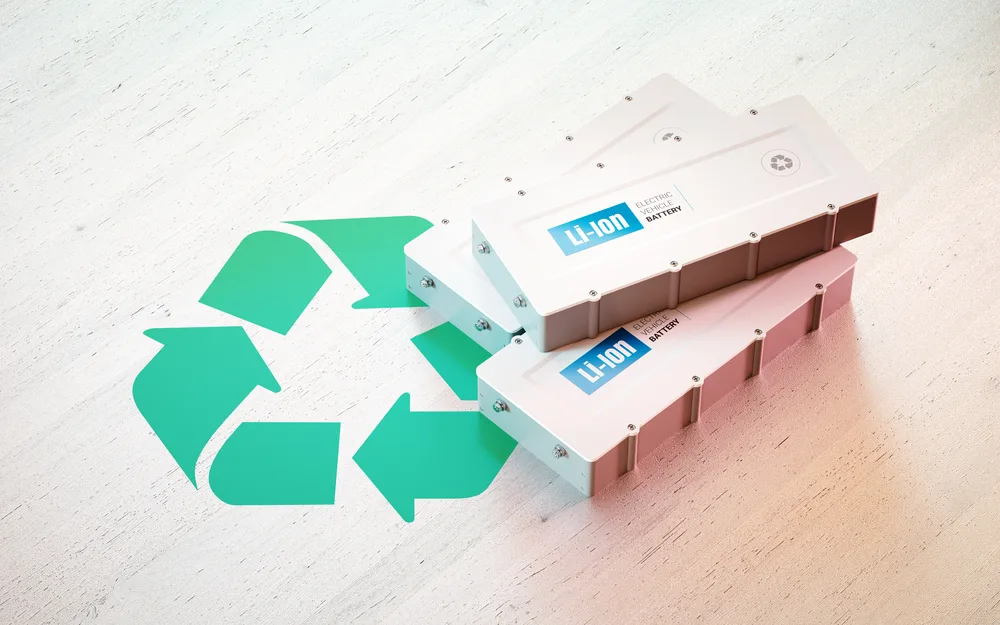
Assessing black mass battery recycling potential in the UK
As the world embraces renewable energy and electric vehicles (EVs), the demand for lithium-ion batteries continues to surge, but so does the pressure from the growing sustainability concerns of battery recycling and end-of-life processing. EV battery waste is now a global priority, with over 15 million tonnes of waste lithium-ion batteries predicted to be produced by 2030. Many of the metals and elements found within lithium-ion batteries are toxic and harmful to the environment, so the race to find recycling solutions is hotting up.
What is Black Mass?
Black mass is generated through the recycling process of lithium-ion batteries. When lithium-ion batteries reach the end of their useful life or become defective, they are collected for recycling and this essentially becomes the first step in black mass production. Black mass contains a mixture of cathode materials such as lithium cobalt oxide, lithium nickel cobalt manganese oxide, and lithium iron phosphate. It is dark in appearance and has a granular consistency, involving multiple stages of industrial processing.
The processing stages include the initial discharge and disassembly, followed by crushing and drying, before being sieved and undergoing pyrolysis to remove any remaining electrolytes and hazardous components. However, the metals found within black mass are being found to have potential benefits, where there is the possibility for these highly valuable materials to be reused in new batteries.
Value of Black Mass Recycling
Black mass battery recycling has numerous potential benefits, as it has the capacity to fit comfortably within the circular economy model. It could prove to be a strategically important part of the supply chain, both making up for the shortfalls of natural geological resources and reusing the valuable metals found within lithium-ion batteries. A research project undertaken by Altilium Metals within a laboratory environment found black mass recycling to result in a 35% cost-saving and 38% reduction in emissions compared to the mining of virgin material. By recovering cathode materials, we begin to reduce the pressures on raw material extraction, which can be environmentally and socially taxing. While the quantity of lithium is sufficient to provide for the EV revolution, reaching it is more complicated, due to a significant proportion of lithium being inaccessible.
Challenges and Opportunities in the UK
To fully harness the potential of black mass recycling, efficient and widespread infrastructure for spent batteries is going to become crucial. This has been continuously developed and improved upon as the wave of EV batteries coming to the end of their useful life is growing closer. By wave, we’re talking directly about the mass influx of EV buyers in recent years, with the production volume of new EVs growing exponentially overnight. When these lithium-ion batteries reach their end, we’ll need waste management, recycling and collection infrastructures that can withstand the demand.
There are significant societal advantages of black mass recycling, as it presents economic opportunities for stimulating growth of a green economy. Innovative recycling practices such as this can help create new jobs, manufacturing relationships and an overall greater perception of EV battery usage and waste management. There have been many publications and news articles covering the issue of battery waste and there are signs that this has impacted the viability of EVs, so leaning into new technologies and solutions can be an effective way of course correcting any scepticism.
Conclusion
The UK is making significant strides towards sustainability, and black mass battery recycling presents an opportunity to further contribute. We’ve seen multiple studies and research projects being carried out, with positive findings and potential for growth in black mass recycling on a large scale. By assessing and optimising the potential of black mass recycling, the UK can minimise its environmental impact, conserve valuable resources, and boost its green economy. While there are still significant steps to be taken, black mass recycling does present a potentially exciting solution for reducing EV battery waste.
At Elmelin, we specialise in solutions for the EV battery sector, working closely with automotive manufacturers and experts to develop bespoke insulation products that are designed to improve safety and maintain performance, with sustainability at the heart of our manufacturing process. To find out more about the work we do for EV battery technology, visit our website here. Alternatively, you can get in touch for a quick chat about how we can help you.
